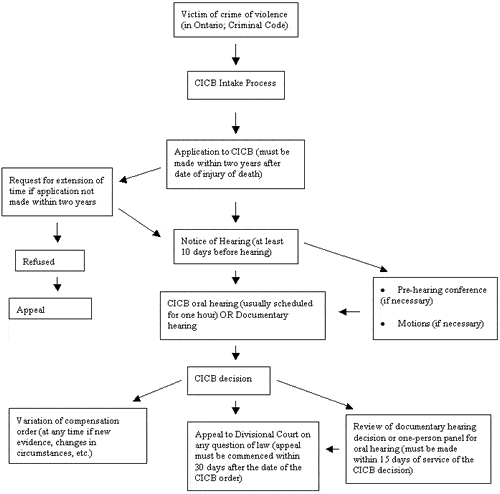Top Rated Criminal Lawyers | Call Us 24/7

The Criminal Injury Compensation Board has a main objective which is to offer support to those who bring forward complaints in criminal matters. Individuals who are complainants in a case, or those affected by a criminal matter in a way that results in loss due to a violent crime, might qualify for financial compensation. There is flexibility in when applications for compensation can be made to the Criminal Injury Compensation Board as they can be submitted at any point during the criminal justice process.
When an applicant is seen as fitting for compensation, the Board issues a financial award. There is potential for the adjustment of a payment order by the Board. They can do this either at their own discretion or upon the request of the complainant, any dependant of the complainant, the Minister, or the offender. This could happen in a number of ways, including changing the terms or altering the ordered payment amount, among other methods.
The source of the financial award is funds assigned by the provincial government. It is the government that disburses these funds to the alleged crime victim (the applicant). Alleged criminals are not responsible for providing these funds directly to their alleged victims. However, as stated on the Criminal Injuries Compensation Board’s Fact Sheet, which addresses frequently asked questions by alleged offenders, the Board may seek reimbursement from an alleged offender for the compensation awarded to a victim, though this is uncommon.
The Board possesses the capabilities and authority needed to start civil proceedings against an alleged offender. This aims to recover damages and costs for the individual who receives a payment under the Compensation of Victim of Crime Act. An alleged offender can be civilly liable firstly, for the costs associated with the action and levying execution, and secondly, for compensating the Board for the awarded compensation value.
Lastly, it should be known that compensation paid or owed under the Compensation for Victims of Crime Act, or kept by the Public Guardian and Trustee or any other person due to an order from the Board under subsection 21(3) of the Act, cannot be subject to garnishment, attachment, execution, or any form of legal process or set-off. Likewise, the right to this cannot be transferred.
The Criminal Injuries Compensation Board holds the power to order compensation awards for a range of different items.
First, they can order awards for expenses that were a direct result of the victim’s injury or death and were incurred reasonably and actually or to be incurred.
Secondly, they can provide compensation for pecuniary loss incurred by the victim as a consequence of total or partial disability affecting the victim’s ability to work. Additionally, in the case of the victim's death, they can cater to the pecuniary loss incurred by the dependants, providing financial assistance in such circumstances.
Another aspect the board focuses on is pain and suffering, providing financial compensation as an acknowledgement of the physical and emotional distress caused by the crime.
Remarkably, the Board's provision also extends to supporting a child who has been born as a result of rape, providing financial assurance in such an unheard-of aftermath of a crime.
Lastly, the Board may also award compensation for other pecuniary loss resulting from the victim’s injury and any expense that, according to the Board, is reasonable to incur.
It is crucial to note that none of the compensation provided under the Compensation for Victims of Crime Act or held by the Public Guardian and Trustee or any other person due to an order from the Board under subsection 21(3) of the Act, can be targeted by garnishment, attachment, execution, set-off, or any other legal process.
Also, the right to such compensation cannot be assigned. At the same time, nothing in the Compensation for Victims of Crime Act offsets the right of any person to pursue civil proceedings to recover damages in relation to the injury or death.
When it comes to the matter of a single individual being injured or killed as a direct result of a violent crime, the maximum sum that may be paid out as a lump sum sits at $25,000.
In situations where more than one individual has been the victim of injury or death as a consequence of a violent crime, the award limit that can be released as a single lump sum to all claimants together is $150,000.
There is a provision for ongoing monthly periodic awards in certain instances where a consistent financial loss is experienced. Examples of such scenarios include lost income or childcare expenses. When a periodic award is made, however, the lump sum component within that ought not to exceed $12,500. The maximum sum that may be awarded as a periodic payment caps at $1,000 per month. The total amount of these periodic payments should not go beyond $365,000.
The ongoing provision of these periodic awards isn't without scrutiny. To ensure the need and relevance of these funds, periodic awards are reviewed on a yearly basis.
Worth noting is that if you come across any criminal offence charges, Kostman and Pyzer, Barristers are open for a free consultation session.